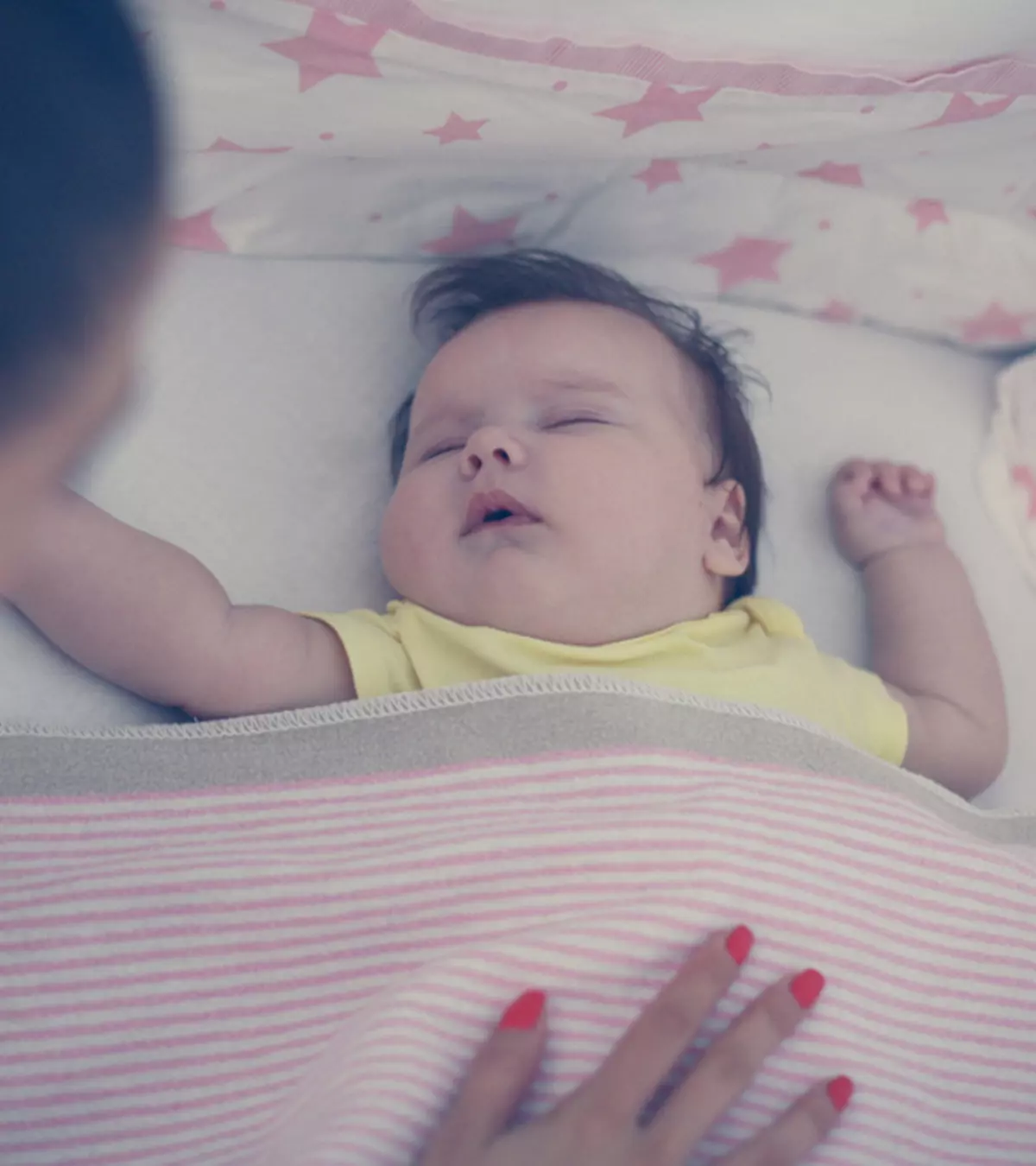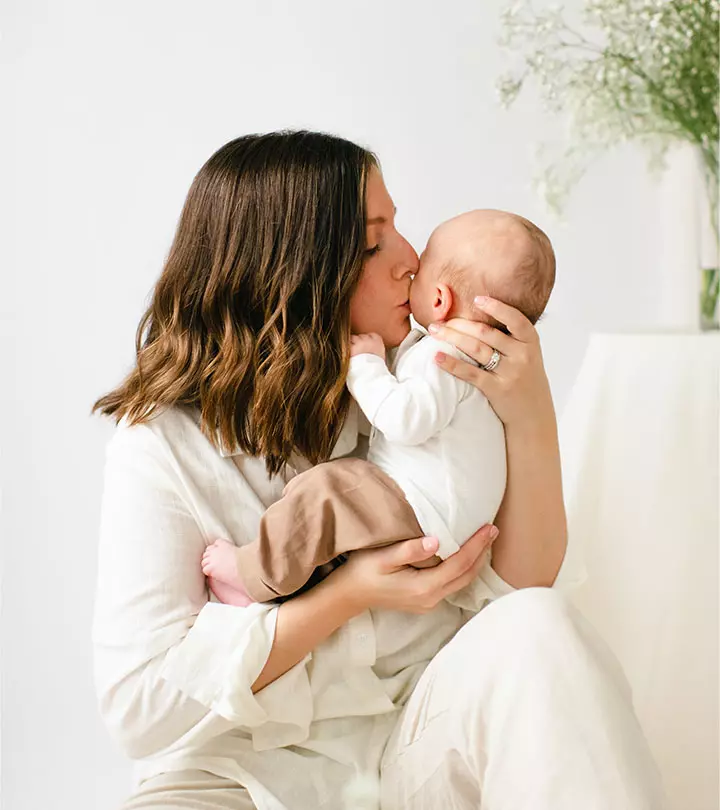

Image: Shutterstock
One of the biggest challenges faced by new parents is their baby’s sleep pattern. With so much discussion going on about infant sleep, it’s no wonder that it has paved the way for several sleep myths over the years. Between the dos, don’ts, and the barrage of information, parents might find it difficult to believe what’s true and what’s not. Continue reading our post as we debunk 5 common sleep myths for you.
Myth #1: Letting Your Baby Sleep During The Day Will Keep Them Up At Night
Image: Shutterstock
During the first month, it’s common for babies to sleep for 10 to 18 hours a day. It will take a few months to develop their sleep-wake-cycle, so it’s normal to let your child take frequent naps during the day. As your baby turns 4 months old, they will settle into a more stable sleep-wake cycle. Babies around the age of 4 months to 1 year usually nap just twice a day, once in the morning and early afternoon. Some babies also prefer a late afternoon nap. Once your baby reaches 9 months of age, it’s best to eliminate the third nap if you are aiming for an earlier bedtime. If you have trouble getting your baby to sleep at night, try to keep the naps short (1). But if your baby shows signs such as fussiness, crying, or rubbing their eyes, don’t force them to stay awake (2).
Myth #2: Babies Will Naturally Dictate Their Sleep Schedule
Image: Shutterstock
Babies are not programmed to regulate their sleep schedule. To help babies fall into a stable sleep schedule, parents need to set a consistent and pleasant bedtime routine. To help your baby get ready for nap time, you can set the mood by closing the blinds, turning off the lights, and removing other distractions in the room. To make sure that your baby gets enough sleep, it’s important to maintain a consistent schedule by putting them to bed at the same time every day for approximately the same amount of time (3).
Myth #3: Sleep-Training Can Be Harmful To The Baby
Image: Shutterstock
Most parents are under the false notion that sleep-training is stressful for babies. And this is primarily because when we think about sleep-training, we tend to immediately associate it with the cry it out method. But sleep-training involves a spectrum of gentler approaches that helps your baby sleep. And according to research, sleep-training doesn’t cause any harmful effects on your baby in the long run (4). Whether you wish to sleep train your child or not is a personal choice, but before you make a decision, make sure you have all the facts and scientific evidence you need.
Myth #4: Feeding Babies Solid Food Help Them Sleep Longer
Image: Shutterstock
A new study suggests that feeding a baby solid food helps improve their sleep. It states that since solid food will keep a baby’s tummy full for longer, they wouldn’t wake up as much when compared to an infant who is breastfed exclusively (5). However, according to the American Academy of Pediatrics, babies should be introduced to solid foods only after six months and recommends exclusive breastfeeding until then (6). The American Academy of Allergy, Asthma, and Immunology states that babies can be introduced to solid foods between 4 to 6 months of age, depending on their developmental readiness (7). Hence most doctors recommend against giving solid foods early to an infant in an effort to help them sleep better as they may not be developmentally ready yet.
Myth #5: You Have To Let Your Baby Cry It Out To Help Him/Her Sleep Better
Image: Shutterstock
Letting your baby cry it out may give parents a good night’s rest when you don’t have to swaddle your baby to sleep. Studies show that it doesn’t have any adverse effects on children later in life (8). But letting babies cry themselves to sleep can be stressful for parents. Experts today suggest that instead of following a method that is stressful for both parents and babies, parents should listen to their natural instincts to be with the child, and instead opt for gentler approaches to help the baby go to sleep (9).
Helping your baby get enough sleep is not easy. We hope our post helped clear up some of the misconceptions related to the baby’s sleep. If you have any questions or concerns about your baby’s sleep schedule, contact your baby’s pediatrician.
Community Experiences
Join the conversation and become a part of our nurturing community! Share your stories, experiences, and insights to connect with fellow parents.


















